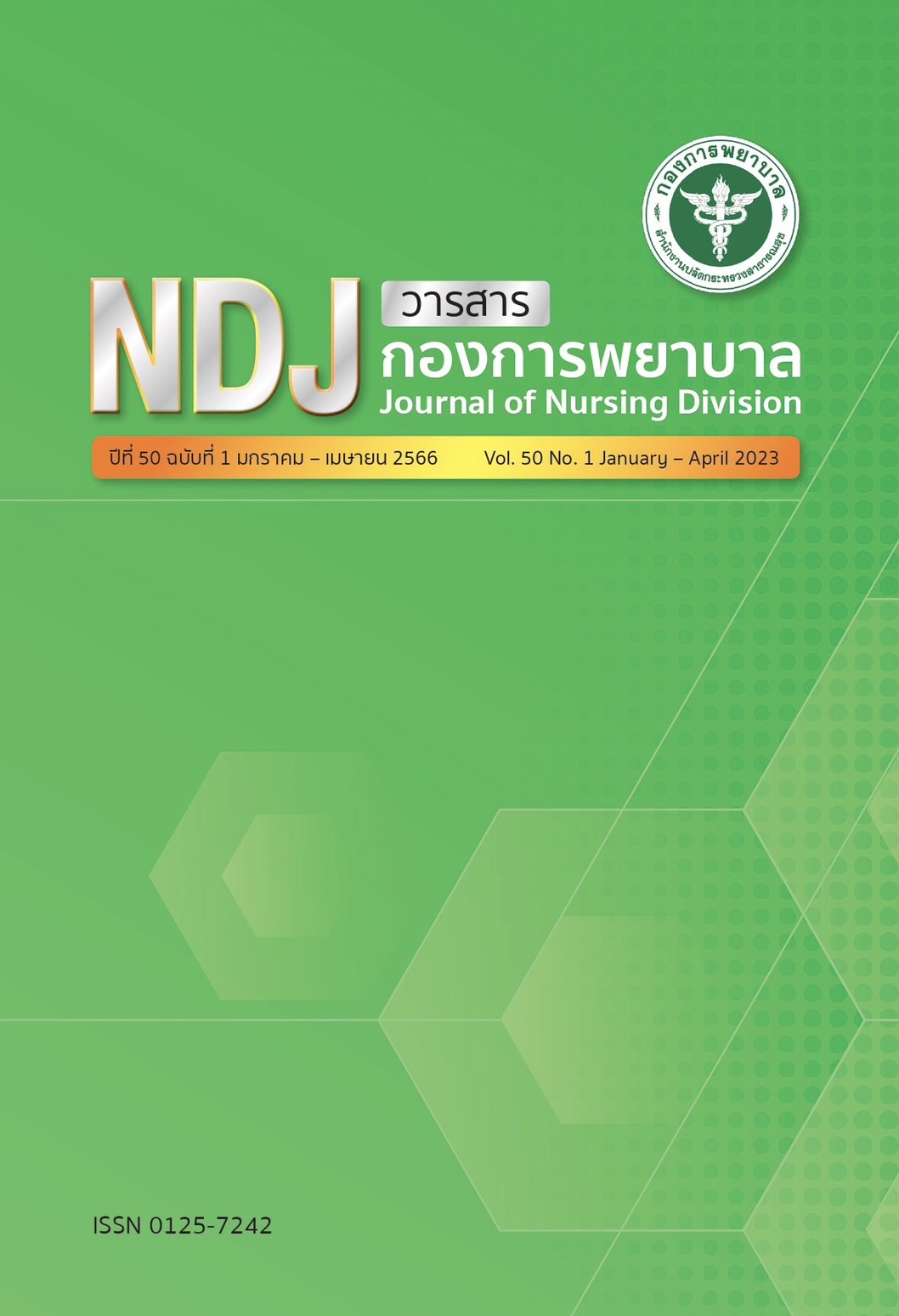อาการและความสามารถในการทำกิจกรรมของผู้ป่วยมะเร็งที่ได้รับการรักษา แบบประคับประคอง ณ หอผู้ป่วยใน โรงพยาบาลมะเร็งอุบลราชธานี
Main Article Content
บทคัดย่อ
บทคัดย่อ
การวิจัยนี้มีวัตถุประสงค์เพื่อศึกษาอาการและอาการรบกวนต่อการใช้ชีวิตของผู้ป่วยมะเร็งที่รับการรักษาแบบประคับประคอง และระดับความสามารถในการทำกิจกรรมของผู้ป่วย ณ หอผู้ป่วยใน โรงพยาบาลมะเร็งอุบลราชธานี กลุ่มตัวอย่าง คือ ผู้ป่วยมะเร็งที่ได้รับการรักษาแบบประคับประคอง ในผู้ป่วยใน โรงพยาบาลมะเร็งอุบลราชธานี 205 คน เก็บรวบรวมข้อมูลจากเวชระเบียน ตั้งแต่ 1 เมษายน ถึง 31 ธันวาคม 2563 เครื่องมือที่ใช้ในการวิจัย ได้แก่ (1) แบบบันทึกข้อมูลส่วนบุคคล (2) แบบบันทึกข้อมูลเกี่ยวกับโรคและการรักษา (3) แบบบันทึกการประเมินอาการผู้ป่วย และอาการรบกวนต่อการใช้ชีวิตของผู้ป่วย และ (4) แบบบันทึกการประเมินระดับผู้ป่วยที่ได้รับการดูแลแบบประคับประคอง วิเคราะห์ข้อมูลโดยใช้สถิติพรรณนาแจกแจงความถี่ ร้อยละ ค่าเฉลี่ย และส่วนเบี่ยงเบนมาตรฐาน
ผลการวิจัย พบว่า อาการทางด้านร่างกาย ที่พบบ่อย ได้แก่ อ่อนเพลีย เบื่ออาหาร อาการปวด อาการหอบเหนื่อย คิดเป็นร้อยละ 31.10, 25.66, 22.55, 19.44, ตามลำดับ อาการทางด้านจิตใจ คือ อาการไม่สุขสบายกายใจ คิดเป็น ร้อยละ 90.99 โดยพบว่า ความอ่อนเพลีย มีความชุกและความรุนแรงที่ส่งผลกระทบต่อการดำเนินชีวิตของผู้ป่วยมากที่สุด คือ ร้อยละ 43.9 ส่วนระดับความสามารถในการทำกิจกรรมของผู้ป่วยที่ ส่วนมากอยู่ที่ระดับ PPS V2 60% และ PPS V2 50% คิดเป็นร้อยละ 72.7 และ 22.9 ตามลำดับ
Article Details

อนุญาตภายใต้เงื่อนไข Creative Commons Attribution-NonCommercial-NoDerivatives 4.0 International License.
เอกสารอ้างอิง
References
International Agency for Research Cancer. [internet]. Lyon Cedex. The Global Cancer Observatory Cancer today 2022. [cited 2021 Dec 10] ; Available from :https://gco.iarc.fr/today
Jarin Chindaprasirt. Basic Oncology. faculty of medicine Khon Kaen university;2018. Thai.
Dodd M, Janson S, Facione N, Faucett J, et al. Advancing the science of symptom management. J Adv Nurs. 2001 ;33(5):668-76.
Montarat Chinda , Darin Jaturapatporn, Albert J Kirshen, Umaporn Udomsubpayakul. Reliability and validity of a Thai version of the edmonton symptom assessment scale (ESAS-Thai). J Pain Symptom Manage. 2011 ;42(6):954-60.
Anderson F, Downing GM, Hill J, Casorso L, LerchN. Palliative performance scale (PPS): a newtool. J Palliat care. 1996; 12(1): 5-11.
Ho F, Lau F, Downing MG, Lesperance M. A reliability and validity study of the Palliative Performance Scale. BMC Palliat Care. 2008;7:1-10.
Busyamas Chewaskulyong, Ladarat Sapinun, G Michael Downing, Prapai Intaratat, Lesperance M.Suntree Leautrakul. Reliability and validity of the Thai translation (Thai PPS Adult Suandok) of the Palliative Performance Scale (PPSv2). Palliat Med. 2012 ;26(8):1034-41.
Ubonratchathani cancer Hospital. Hospital-based Cancer Registry. Ubonratchathani. The Hospital; 2020. Thai.
Prathomporn Siraprapasiri and Duenpen Horatanarung ,eds. Practice Guideline of Palliative care book (for healthcare professionals) .Nonthaburi: Department of Medical Service Ministry of Public Health, 2020. Thai.
Chaliya Wamaloon. Development models of the terminal cancer patient’s care at Ubon Ratchathani cancer center. Ubon Ratchathani; 2008. Thai.
Kutner JS, Kassner CT, Nowels DE. Symptom burden at the end of life: hospice providers' perceptions. J Pain Symptom Manage. 2001 ;21(6):473-80.
Kittikorn nilmanat.,Wongchan Petpichetchian.,Wantanee Wiroonpanich.,Sureeporn Kritcharoen. A survey of Symptom Experience and Symptom Management in Person Living with Cancer in Thailand. Songkla. Prince of Songkla University; 2006. Thai.
Get-Kong S, Hanucharurnkul S, McCorkle R, Viwatwongkasem C, Junda T, Ittichaikulthol W. Symptom experience, palliative care and spiritual well-being among Thais with advanced cancer. Pacific Rim Int J Nurs Res. 2010;14(3):219-34.
Lee JW, Lee WB, Kim W, Min BI, Lee H, Cho SH. Traditional herbal medicine for cancer pain: a systematic review and meta-analysis. Complement Ther Med. 2015 ;23(2):265-74.
Fedel P, Joosse LL, Jeske L. Use of the Palliative Performance Scale version 2 in obtaining palliative care consults. J Clin Nurs. 2014 ;23(13-14):2012-21.


